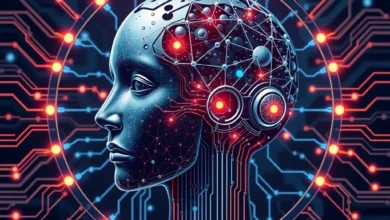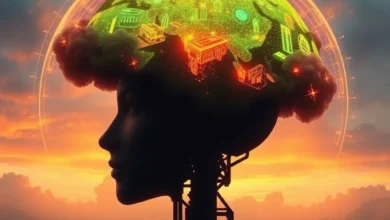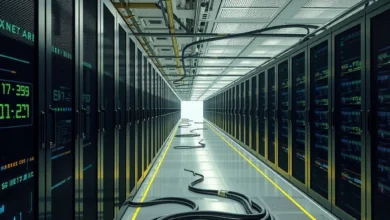The Top 10 Emerging Technologies of 2025: Innovations Set to Change the World
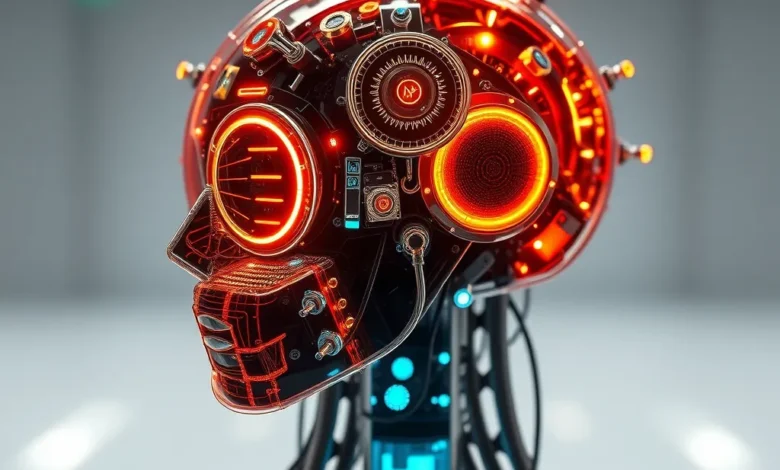
As we move deeper into the 2020s, the pace of technological innovation is accelerating at an unprecedented rate. The year 2025 is shaping up to be a landmark for breakthroughs that promise to transform how we live, work, and interact with the world. From artificial intelligence to sustainable energy, these emerging technologies are not only pushing the boundaries of what’s possible—they’re also addressing some of humanity’s most pressing challenges. Here’s a look at the top 10 emerging technologies of 2025 that are set to change the world.
1. Generative Artificial Intelligence (AI)
Generative AI has moved from novelty to necessity, powering everything from content creation to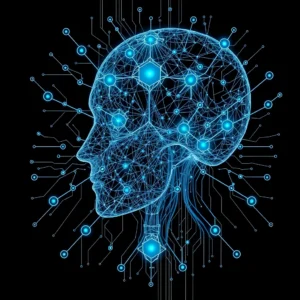 drug discovery. These systems can generate human-like text, images, music, and even code, opening up new possibilities for creativity, productivity, and problem-solving. Businesses are leveraging generative AI to automate routine tasks, develop new products, and personalize customer experiences. Its rapid evolution is also raising important questions about ethics, transparency, and the future of work.
drug discovery. These systems can generate human-like text, images, music, and even code, opening up new possibilities for creativity, productivity, and problem-solving. Businesses are leveraging generative AI to automate routine tasks, develop new products, and personalize customer experiences. Its rapid evolution is also raising important questions about ethics, transparency, and the future of work.
2. Quantum Computing
Quantum computing is no longer just a theoretical pursuit. In 2025, the first practical quantum computers are beginning to tackle problems that were previously unsolvable, such as complex molecular simulations for pharmaceuticals and advanced cryptography. Companies and governments are racing to develop quantum algorithms that could revolutionize industries from finance to logistics. While mainstream adoption is still a few years away, the breakthroughs happening now are laying the groundwork for a new era of computational power.
3. 6G Wireless Networks
While 5G is still rolling out globally, the tech world is already buzzing about 6G. Promising speeds up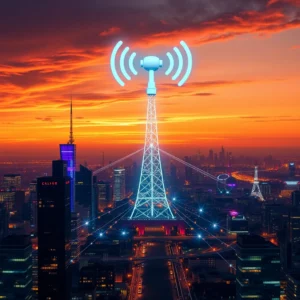 to 100 times faster than 5G, 6G networks are expected to enable real-time holographic communications, ultra-precise positioning, and seamless connectivity for billions of devices. This leap in wireless technology will accelerate the adoption of smart cities, autonomous vehicles, and immersive virtual experiences, making connectivity more reliable and ubiquitous than ever before.
to 100 times faster than 5G, 6G networks are expected to enable real-time holographic communications, ultra-precise positioning, and seamless connectivity for billions of devices. This leap in wireless technology will accelerate the adoption of smart cities, autonomous vehicles, and immersive virtual experiences, making connectivity more reliable and ubiquitous than ever before.
4. Neuromorphic Computing
Inspired by the architecture of the human brain, neuromorphic chips are designed to process information more efficiently and with far less energy than traditional processors. In 2025, these chips are powering next-generation robotics, edge AI devices, and real-time data analytics. Their ability to learn and adapt on the fly is making them ideal for applications in healthcare, security, and autonomous systems.
5. Solid-State Batteries
The race for better batteries is heating up, and solid-state technology is leading the charge. Unlike conventional lithium-ion batteries, solid-state batteries use a solid electrolyte, making them safer, lighter, and capable of much faster charging. Electric vehicles equipped with solid-state batteries are expected to achieve longer ranges and shorter recharge times, accelerating the transition to sustainable transportation and renewable energy storage.
6. Sustainable Hydrogen Production
Hydrogen has long been touted as a clean energy solution, but the challenge has been producing it efficiently and sustainably. In 2025, new methods—such as electrolysis powered by renewable energy and advanced catalysts—are making green hydrogen more affordable and scalable. This breakthrough is helping decarbonize industries like steel, shipping, and aviation, and is playing a critical role in the global push toward net-zero emissions.
7. Advanced Biomanufacturing
Biomanufacturing is revolutionizing how we produce everything from medicines to materials. Using engineered microbes and cells, scientists can now manufacture complex drugs, biodegradable plastics, and even lab-grown meat at scale. In 2025, advances in synthetic biology and automation are making biomanufacturing more efficient, cost-effective, and accessible, paving the way for a more sustainable and resilient supply chain.
engineered microbes and cells, scientists can now manufacture complex drugs, biodegradable plastics, and even lab-grown meat at scale. In 2025, advances in synthetic biology and automation are making biomanufacturing more efficient, cost-effective, and accessible, paving the way for a more sustainable and resilient supply chain.
8. Personalized Medicine Powered by AI
The intersection of AI and healthcare is ushering in a new era of personalized medicine. AI algorithms can now analyze vast amounts of genetic, lifestyle, and clinical data to tailor treatments to individual patients. In 2025, this technology is enabling earlier disease detection, more accurate diagnoses, and customized therapies that improve outcomes and reduce side effects. The result is a healthcare system that’s more proactive, precise, and patient-centric.
9. Carbon Capture and Utilization
As the world grapples with climate change, carbon capture and utilization (CCU) technologies are gaining momentum. In 2025, new systems are capturing CO₂ emissions from power plants and industrial facilities and converting them into useful products like fuels, chemicals, and building materials. These innovations are not only helping to reduce greenhouse gas emissions but also creating new economic opportunities in the circular carbon economy.
10. Agentic AI and Autonomous Systems
Agentic AI—intelligent systems capable of autonomous decision-making and action—is redefining automation. From self-driving vehicles and delivery drones to smart factories and digital assistants, these systems are taking on complex tasks with minimal human intervention. In 2025, agentic AI is making businesses more agile, supply chains more resilient, and daily life more convenient.
Looking Ahead: A Future Transformed
The top 10 emerging technologies of 2025 are more than just buzzwords—they represent the convergence of science, engineering, and human ingenuity. As these innovations mature, they promise to solve real-world problems, unlock new economic opportunities, and reshape society in profound ways. For individuals, businesses, and governments alike, staying informed and adaptable will be key to thriving in this era of rapid technological change. The future is arriving faster than we think—and it’s being built today.

